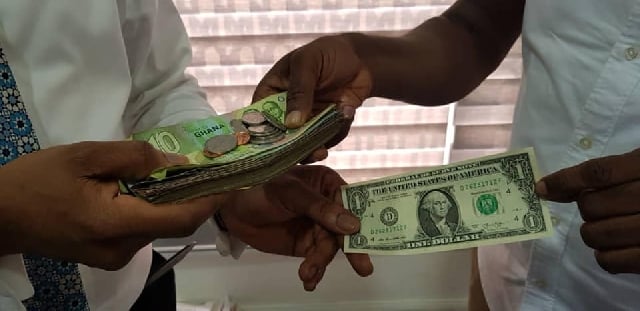The Ghanaian Cedi has demonstrated a sustained period of appreciation against the United States dollar, reaching a buying rate of GHS12.17 and a selling rate of GHS12.94 per dollar as of May 19, 2025. This positive trend indicates a strengthening of the Cedi’s value in the foreign exchange market. Forex bureaus, which cater to individual currency exchange transactions, offer slightly different rates, with a buying rate of GHS13.00 and a selling rate of GHS13.65 per dollar. This difference reflects the margin maintained by forex bureaus for their services and operational costs. The data, sourced from Cedirates.com, a reliable platform for currency information in Ghana, provides a snapshot of the prevailing exchange rates across different market segments.
The interbank market, where financial institutions trade currencies, offers a more competitive exchange rate. Banks are buying dollars at GHS12.31 and selling them at GHS12.33, indicating a narrower spread compared to forex bureaus. This smaller margin is typical of interbank transactions due to the larger volumes traded and the direct participation of financial institutions. The interbank market plays a crucial role in determining the overall direction of the exchange rate and influencing the rates offered by other market participants like forex bureaus. The Cedi’s performance against other major currencies such as the British Pound and the Euro also shows favorable trends.
Against the British Pound, the average exchange rate stands at GHS16.10 for buying pounds and GHS17.17 for selling pounds at forex bureaus. Similarly, the Euro exchanges at GHS13.58 for buying and GHS14.59 for selling. These rates, alongside the dollar exchange rate, provide a comprehensive view of the Cedi’s performance against a basket of major international currencies. The Bank of Ghana’s interbank rates for the Pound and Euro are slightly different, with the Pound selling at GHS16.34 and the Euro at GHS13.73. This difference reflects the central bank’s role in managing the currency and maintaining stability in the forex market.
Money transfer services like LemFi and Afriex, which facilitate remittances and cross-border payments, offer competitive rates for transferring funds from the US or the UK to Ghana. For dollar transfers, LemFi offers a rate of GHS12.31 per dollar, while Afriex provides GHS12.34. For British Pound transfers, LemFi’s rate is GHS16.40, and Afriex offers GHS16.44. These rates are generally closer to the interbank rates, making these services a cost-effective option for international money transfers. This competition among money transfer operators benefits consumers by offering more favorable exchange rates for their remittances.
For Euro transfers, Afriex offers a rate of GHS13.82 per Euro, while LemFi provides a slightly lower rate of GHS13.80. The relatively small difference between the rates offered by these two services highlights the competitive nature of the money transfer market. This competition helps ensure that customers receive optimal value for their international money transfers. Furthermore, the rates offered by these services are often more favorable than those offered by traditional banking channels, making them an attractive option for individuals sending money to Ghana.
Digital subscription payments for services like Netflix, Spotify, and Apple Music, made using Visa and Mastercard, are processed at an exchange rate of GHS13.27 per dollar. This rate is generally higher than the interbank and money transfer rates but is competitive with the rates offered by forex bureaus. The standardization of the exchange rate for these digital transactions simplifies the payment process for consumers and provides transparency in the applicable exchange rate. Overall, the Ghanaian Cedi’s performance against major currencies reflects positive market sentiment and contributes to a more stable economic environment.














